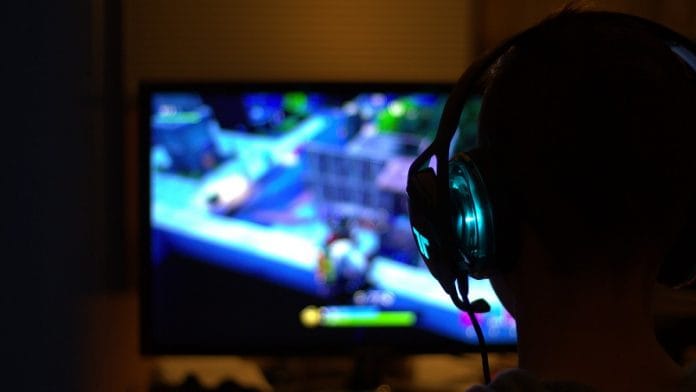New Delhi: A new Oxford University study has found that contradictory to the common perception that playing video games over a long period of time is bad for one’s physical and mental well being, the activity can actually be good.
“Contrary to many fears that excessive game time will lead to addiction and poor mental health, we found a small positive relation between game play and well-being,” the study says.
The World Health Organization lists ‘Gaming Disorder’ in the International Classification of Diseases (ICD-11) while the American Psychiatric Association has called for more research into internet gaming disorder, indicating that mental health professionals see a link between gaming and poor mental health.
However, the study, published Monday and led by Professor Andrew Przybylski, director of research at Oxford Internet Institute, University of Oxford, said, “Our findings show video games aren’t necessarily bad for your health; there are other psychological factors which have a significant effect on a persons’ well-being. In fact, play can be an activity that relates positively to people’s mental health — and regulating video games could withhold those benefits from players.”
Also read: Move over Contagion. Board and video games on virus apocalypse are the new obsession
Data collected from gamers, game companies
Unlike previous studies, the Oxford study obtained data about how long a game is played directly from the gaming company as well as players, generating a more accurate data set.
The researchers found that on average, “participants overestimated their game time by about two hours”. This shows that relying on players to self report play time yields inaccurate estimates.
According to the study, what made a crucial difference to the findings was having objective, credible play time data directly from the company.
“In our study, associations between objective game time and well-being were larger than those between self-reported game time and well-being. Had we relied on self-reports only, we could have missed potentially meaningful association,” the researchers noted.
The study further stated that policymakers “urgently require reliable, robust, and credible evidence” on how video games impact mental health given the massive popularity gaming has and continues to acquire.
The study also noted that the gaming industry earned more than the film industry last year and that the number of gamers is at an all-time high.
In India alone, there are 365 million online gamers and game app downloads grew 165 per cent between 2016 and 2018, the fastest in any country.
However, there has been a lack of accurate data to measure the impact of gaming so far. “Researchers have needed to fall back on asking players to report their behaviour, a flawed approach which cannot effectively guide policy,” the study noted.
Thus any move to “unnecessarily” regulate gaming without credible evidence could “restrict human rights”, it further pointed out.
Also read: Video gamers have the last laugh as e-sports industry booms during Covid-19 lockdown
Study specs
The Oxford study partnered with US-based Electronic Arts and the Nintendo of America, a US subsidiary of the popular Japanese gaming company.
Players from two games were surveyed — Electronic Arts’ Plants vs. Zombies: Battle for Neighborville, and Nintendo’s Animal Crossing: New Horizons.
The survey looked at users aged 18 and above in the US, the UK and Canada from August to November 2020.
Players were sent a survey from the two gaming companies as well as the Oxford researchers. Each respondent’s answers were matched with how long they played a game, data available on the company’s servers.
In total, 518 players of the Electronic Arts game completed the survey (404 men, 94 women, two ‘other’ and 17 who preferred not to disclose their gender), while 6,011 who played the Nintendo game responded (3,124 men, 2,462 women, 153 ‘other’ and 88 who chose not to disclose their gender).
The survey examined several factors including well-being that measured how often six positive and six negative feelings were felt over a two-week period. Respondents indicated the frequency of the feelings on a scale of 1 (very rarely/never) to 7 (very often/always).
The survey also assessed how much freedom and enjoyment a player felt from the game The study found that respondents who played more in the two week-period reported “higher well-being”.
Also read: Indian cities are banning PUBG over fears the game is creating ‘psychopaths’






